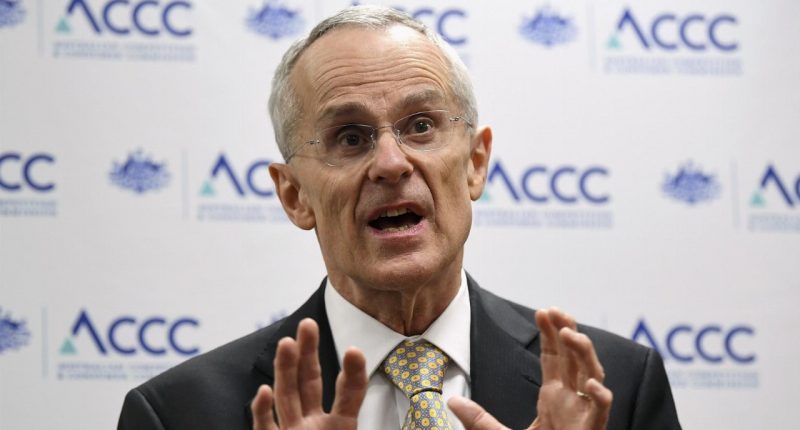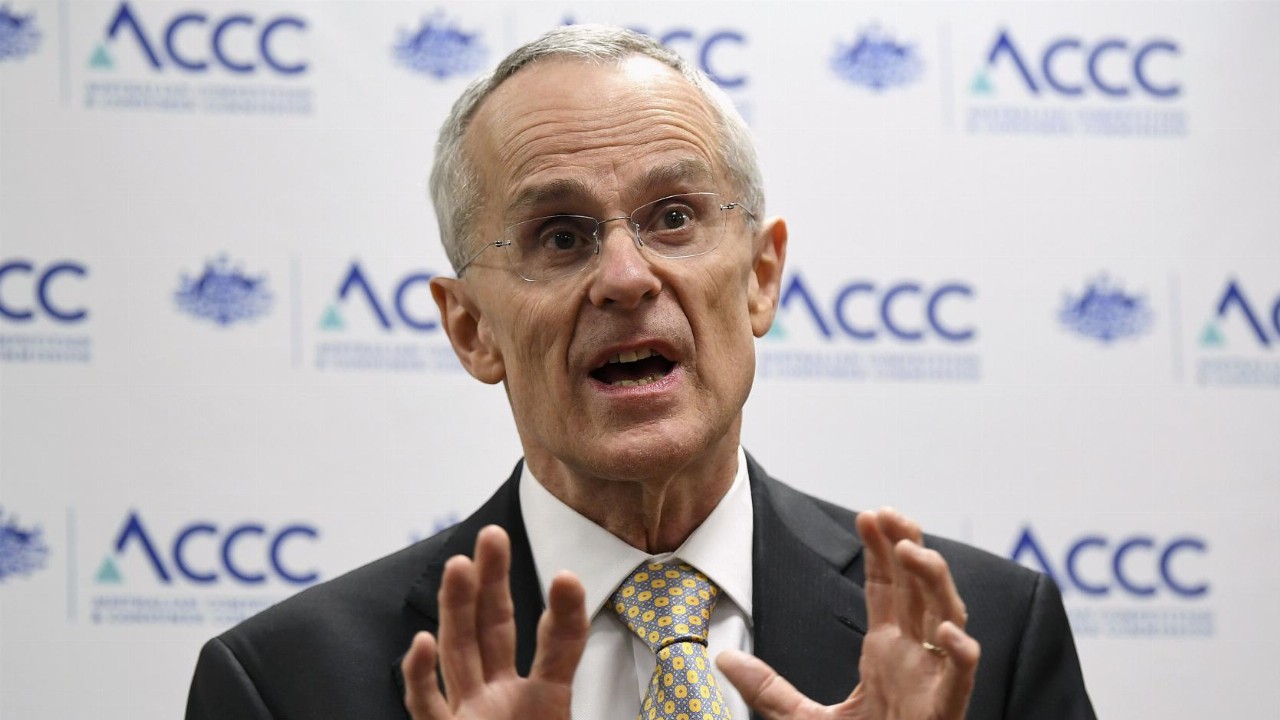- Millions of Australian consumers will pay more for their mobile phone plans after recent price increases by all three big telco companies
- The ACCC said they have increased the price of several post-paid plans and increased prices of a range of pre-paid plans via shorter expiry periods
- These mobile price increases follow the merger of TPG and Vodafone in 2020, which the ACCC opposed
- A TPG Telecom spokesperson said it has not raised prices since the merger and said the claim that it has was “simplistic and misleading”
- The ACCC was concerned it would lead to higher mobile prices, and result in little incentive to compete strongly
Australians will pay more for their mobile phone plans as a result of recent pricing hikes post-TPG and Vodafone merger, according to the ACCC.
The big three telco companies, Telstra, Optus and Vodafone who collectively hold 87 per cent of the retail mobile market and 95 per cent of the post-paid market, have raised their price since July 2020.
The ACCC said they have increased the price of several post-paid plans, and have effectively increased the price of a range of pre-paid plans by reducing their expiry periods, forcing customers to recharge more often.
“Our analysis shows that consumers will now be left paying significantly more for a range of mobile phone plans at Telstra, Optus and Vodafone,” ACCC Chair Rod Sims said.
“The behaviour of the three big telcos would suggest they are not concerned about losing customers to rivals.”
These mobile price increases follow the merger of TPG and Vodafone in 2020, which the ACCC opposed, as it was concerned it would lead to higher mobile prices, and result in little incentive to compete strongly.
“Despite evidence showing the three mobile network owners reacted strongly to the potential competitive threat of a new TPG network, the Court considered that the merger would be pro-competitive, allowing Vodafone to compete more effectively against Telstra and Optus,” Mr Sims said.
“When markets end up with a smaller group of large look-alike players with stable positions, competition is muted and consumers pay more,” Mr Sims said.
A TPG Telecom spokesperson said it has not raised prices since the merger and said the claim that it has was “simplistic and misleading”.
The spokesperson said the ACCC chose to use data that doesn’t reflect what their customers are actually paying, claiming it ignored the ongoing promotions for Vodafone and other brands, which is one of the main methods it offers discounts.
“The ACCC is out of touch to suggest that mobile providers, as commercial businesses, are not competing hard for customers every day,” the spokesperson said.
“The bottom line is, we are offering better value and a better network experience because we’re able to compete harder for customers after the merger.”
During the past 12 months, Telstra increased its post-paid mobile plan prices by between $5 and $15 per month, Optus raised its pre-paid plans by $6 a month while Vodafone’s were hiked up between $5 and $40 a month.
In December 2020, Vodafone’s pre-paid plans that previously featured a 35-day expiry reduced to a 28-day expiry for the same monthly cost, equating to a 25 per cent price increase over a year.
Telstra has also reduced the recharge expiry on 35 and 42 day pre-paid plans to 28 days, which effectively equates to a price increase of between 25 per cent and 50 per cent over a year.
The TPG spokesperson said the ACCC failed to compare like-for-like plans and said it does not reflect Vodafone’s advertised pricing and ignored additional plan inclusions like 5G access and increased data speeds.
The spokesperson said the prices quoted by the ACCC were incorrect because of the “rolling promotions we have had in place during the relevant period”.
“Vodafone customers are paying up to 50 per cent less than what the ACCC has quoted, while receiving up to 350GB of bonus data,” the TPG spokesperson said.
“We have only been able to continue to offer these incentives because of our increased scale following the merger.”
The ACCC said Telstra, Optus and Vodafone are offsetting recent price increases with higher data allowances, data which the average Australian doesn’t need.
According to data released as part of the ACCC’s latest Internet Activity Report, the average mobile phone user in Australia consumes less than 15GB of data per month.
“We suspect many customers who have recently had their mobile provider justify a price increase with higher data usage would prefer the previously available lower monthly fee in exchange for a lower data allowance,” Mr Sims said.







